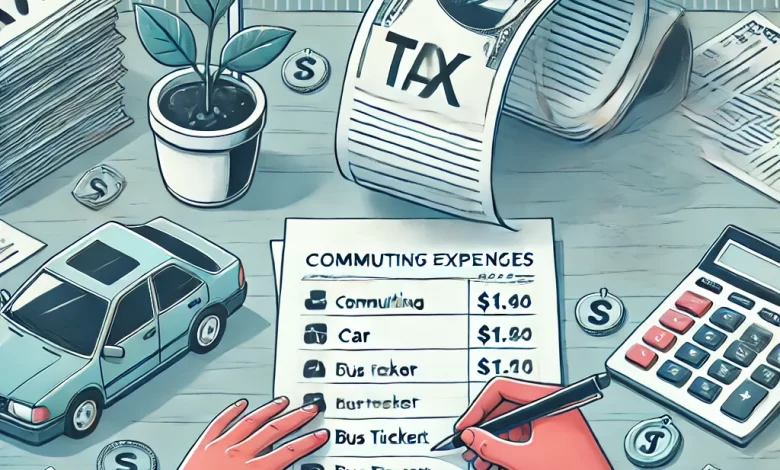Can I Put Commute on Tax Returns?

Can I Put Commute on Tax Returns?
For many taxpayers, commuting expenses represent a significant portion of their daily costs. It’s natural to wonder whether these expenses can be deducted on tax returns to reduce taxable income. While the IRS has clear rules regarding commuting and transportation expenses, understanding what is and isn’t deductible is essential. Let’s explore the details.
See Article Content
- 1 What Are Commuting Expenses?
- 2 Are Commuting Expenses Deductible?
- 3 Exceptions to the Rule
- 4 How to Document Eligible Travel Expenses
- 5 State-Level Considerations
- 6 Impact of Remote Work
- 7 Conclusion
- 8 Frequently Asked Questions
- 9 Can I deduct my daily commute to work?
- 10 Are there any exceptions for self-employed individuals?
- 11 What if I have multiple work locations?
- 12 Can I use pre-tax dollars for commuting expenses?
What Are Commuting Expenses?
Commuting expenses are the costs incurred while traveling between your home and your regular place of work. These include:
- Gasoline and vehicle maintenance costs.
- Public transportation fares (e.g., bus, subway, or train tickets).
- Parking fees at or near the workplace.
- Tolls paid during your commute.
Are Commuting Expenses Deductible?
Under most circumstances, commuting expenses are not deductible on your federal tax return. The IRS considers the cost of traveling between your home and your regular place of work a personal expense, which is not eligible for deduction. This rule applies regardless of the distance or method of travel.
Why Aren’t Commuting Expenses Deductible?
The IRS views commuting as a personal choice and not directly related to your job responsibilities. The cost of getting to and from work is considered a basic cost of living, similar to housing or food expenses.
Exceptions to the Rule
While the general rule disallows commuting deductions, there are exceptions where transportation expenses might qualify as deductible:
- Business-Related Travel
- If you travel between multiple job sites for the same employer or conduct business-related tasks at various locations, these travel costs may be deductible.
- Temporary Work Locations
- If you commute to a temporary work location outside your metropolitan area, the travel expenses may qualify for deduction.
- Self-Employed Individuals
- Self-employed individuals can deduct transportation costs directly related to their business. For example:
- Driving to meet clients.
- Traveling to a supplier or vendor.
- Visiting a job site.
- Self-employed individuals can deduct transportation costs directly related to their business. For example:
- Commuter Benefits Programs
- While not a deduction, some employers offer commuter benefits programs, allowing employees to pay for commuting costs with pre-tax dollars, reducing taxable income.
How to Document Eligible Travel Expenses
If you qualify for deductions related to transportation, maintaining accurate records is crucial. Here’s how you can document your expenses:
- Mileage Log
- Keep a detailed log of miles driven, including dates, destinations, and purposes of each trip.
- Receipts and Bills
- Save receipts for parking fees, tolls, and public transportation costs.
- Digital Tools
- Use apps or software to track mileage and transportation expenses for easy recordkeeping.
State-Level Considerations
While commuting expenses are not deductible on federal tax returns, some states may have different rules. It’s worth checking with your state’s tax authority or consulting a tax professional to understand local tax regulations.
Impact of Remote Work
The rise of remote work has significantly reduced commuting for many individuals. However, for those who occasionally travel to an office or coworking space, the same IRS rules apply—commuting costs remain non-deductible unless tied to business-related travel.
Conclusion
In most cases, commuting expenses cannot be deducted on your tax return as they are considered personal expenses. However, exceptions exist for business-related travel, temporary work locations, and self-employment. Understanding these distinctions and maintaining proper documentation is essential to ensure compliance and maximize potential deductions.
If you’re uncertain about your specific situation, consulting a tax professional can help clarify eligibility and provide personalized advice.
Frequently Asked Questions
Can I deduct my daily commute to work?
Are there any exceptions for self-employed individuals?
What if I have multiple work locations?
Can I use pre-tax dollars for commuting expenses?
Enjoyed this article? You might also find the next one fascinating and worth a read Are You Taxed on Workers’ Compensation Wages in Florida?






